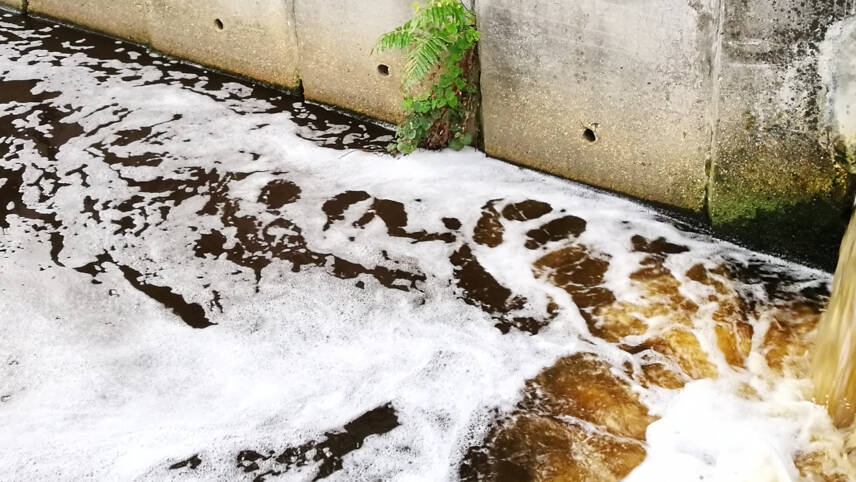Member only content free until 27/05/2024
To continue reading this article and enjoying free access to all Utility Week’s content up to the 27/05/2024 Register today!
Ready to become a member?

Water companies should be fined for faulty monitoring devices on combined sewer overflows (CSOs), Peers have said.
The House of Lords’ call for tighter controls around CSO monitoring comes after new figures reveal that one in six such monitors are not working.
According to research by the Liberal Democrats, 2,298 sewage monitors in the UK are currently faulty.
The worst offenders for faulty sewage monitors are the three companies with the highest number of CSOs: Severn Trent (715), Yorkshire Water (495) and United Utilities (229).
Speaking at a House of Lords debate on water company licences, Baroness Parminter said: “Why are the government not fining these water companies immediately if their storm overflow monitoring devices are not working, because otherwise no one can get the evidence and Ofwat cannot make these decisions?”
Baroness Jones of Whitchurch also questioned why companies were being allowed to “mark their own homework” for improving monitoring standards.
“A lot of monitors do not work, so how can we be assured that decisions will be made on the basis of accurate reporting? It is not in their interest to provide that accurate information,” Jones said.
Where faults are not being correctly measured, Lord Benyon, minister of state for the Department for Environment, Food and Rural Affairs, said the Environment Agency will investigate and additional information on water quality will be provided in the future when additional devices are installed.
In order to improve environmental performance within the sector, Ofwat has recently been granted the ability to modify companies’ licences without their consent. As such company bonuses will now be more closely linked to environmental performance.
However, Baroness Bakewell of Hardington Mandeville cast doubt on whether measures to withhold dividends were sufficient to make a material difference to the country’s water quality. She called for “something more robust” to turnaround company performance on pollution.
In response, Benyon defended the move as “part of a concerted effort” to tackle the problem in tandem with regulatory intervention – with proposed uncapped fines.
He said Schedule 3, which will mandate the use of sustainable drainage systems (SuDS) to manage surface water and alleviate pressures on the sewer networks, was being taken forward urgently by the government as part of this effort.
The water sector is also required to add monitors to all CSOs by the end of this year and make data available.
A spokesperson for Yorkshire Water said of faulty devices: “Due to the geography and industrial heritage of Yorkshire, we have more overflows than many water companies in the UK.
“Over 98% of our overflows are monitored and these monitors operate in a hostile environment, which poses a range of challenges that mean they can temporarily stop communicating. We understand the importance of accurate monitoring and reporting and we are already carrying out a £3.3m project to upgrade monitoring of overflows across our network.”
Despite having the third highest number of faulty devices, United Utilities recorded the highest operability of monitors working last year according to the Environment Agency.
A UU spokesperson added: “Event Duration Monitors are located in challenging environments in sewers and exposed to the elements at treatment works and this means that faults can occur.
“We aim to keep operability as high as possible by carrying out routine checks on them as well as reviewing performance data during the year to look for any erroneous results which we can then investigate and rectify. This strategy is sector-leading with nearly 96% of our EDMs meeting the operational requirements.”
A Severn Trent spokesperson addewd: “We’ve installed 100% of overflow monitors across our network, 12 months ahead of the government target. Our data availability was 87% in 2022, and in 2023 this has increased further to 92%, and improving all the time.
“The majority of monitors listed are fully operable, but some have been unable to provide all data readings due to communication signals, or sensor issues. Some of these monitors are also installed in challenging locations, such as remote areas or deep underground.
“To improve the data availability performance, we have now upgraded two thirds of the monitors installed to provide enhanced communication signals, and we’re continuing to invest and deliver a programme of work using new technology to upgrade those remaining monitors to ensure greater data availability.”
The government has also today (25 April) announced that reduction targets for discharges from storm overflows will be enshrined in law within the Environment Act. This includes cutting the number of spills by 80% by 2050, as outline by Defra last year.
Environment secretary Therese Coffey said the complexity and scale of changes needed to the sewer networks means change cannot happen overnight.
“I have been unequivocal on this issue,” Coffey said. “Water companies need to clean up their act – and they need to cover the costs.”




Please login or Register to leave a comment.